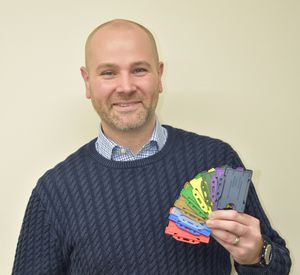A host of former Yorkshire employees, including former test match players Tino Best and Rana Naveed-ul-Hassan, have corroborated Azeem Rafiq’s accounts of racism at the county cricket club.
Mr Rafiq left Yorkshire County Cricket Club (YCCC) in 2018. He was the first Yorkshire player of Asian descent to captain England at any level, having led the under-15 and under-19 teams. In an interview with Wisden in August, Mr Rafiq revealed that he had suffered racism while playing for the club.
Mr Rafiq’s decision to reveal the experiences he suffered have directly led to measures from the England & Wales Cricket Board (ECB) to make the sport more inclusive. Announced at the end of November, these are:
a) A new Independent Commission for Equality in Cricket;
b) A Forum for Race in Cricket;
c) A new Equality Code of Conduct.
Mr Rafiq is pleased that these initiatives have also been endorsed by Yorkshire County Cricket Club (YCCC). However, he believes that more must be done to ensure that combating racism in cricket must start with the youngest age groups and continue throughout the junior and senior set-ups.
Mr Rafiq said: “I want to thank my former Yorkshire colleagues for supporting me and speaking out about their experiences. I know from personal experience how difficult this is, but we’re all working hard to make sure the sport we love – a sport that famously bridges cultures from the Caribbean to Europe, Africa to Asia – can be enjoyed by everyone who want to play.
“I’m grateful to the ECB for following-up after reading my submitted evidence by reviewing the way it promotes multi-culturalism and tackles racism in cricket, while YCCC has clearly acknowledged the issues I raised by endorsing those measures. Part of the problem I faced was that my concerns and complaints fell on deaf ears. I raised complaints about racism, including with the head of diversity, and no-one took action. The key to change is to listen and then to keep listening.
“But these reforms must only be the start. I will be seeking an urgent meeting with the ECB to discuss how we can instil cultural and racial acceptance through all age groups. No one must feel left out playing this sport, which for me is the real beautiful game.”
YCCC has launched an investigation into the allegations of institutional racism. Mr Rafiq has submitted written evidence and was interviewed by the investigating team on 13 November. The process is expected to be concluded by the end of the year, with a report published in early 2021.
Many ex-players and staff have also given evidence to support Mr Rafiq’s efforts to put an end to institutional racism in cricket.
Tino Best, who played 25 test matches and 26 one-day internationals for the West Indies, provided a statement to say: “My time at Yorkshire…. was a mixed bag…. some of the things I saw towards the players of Pakistani descent wasn’t good. Every day I could hear them complaining about how they were being treated…. these three guys never looked settled or happy and that was hurtful to see.”
Rana Naveed-ul-Hassan, pointed to “systematic taunting” at Yorkshire in a September 2020 statement, which followed Mr Rafiq’s disclosures. He said: “I agree with each and every statement of Azeem…. many Asian players were affected by their (YCCC) bad attitude including me and Azeem.”
Taj Butt, who was employed by Yorkshire between 2014 to 2017 within the Yorkshire Cricket Foundation, offered his resignation within six weeks of joining because of the use of racist language at Yorkshire.
He stated: “Continuous references to taxi drivers and restaurant workers when referring to Asian Community…. they called every person of colour ‘Steve’. Even Indian Test Player Cheteshwar Pujara, who joined as an overseas professional, was called Steve because they could not pronounce his name.”
Tony Bowry, who was a coach at YCCC until 1996 and cultural diversity officer at the Yorkshire Cricket Board in 1996-2011. He was then the first cricket development manager to be appointed to develop the game for black minority communities, said: “Many youngsters struggled to make progress, and the few that did found the environment of the dressing rooms very difficult and unwelcoming, as a direct result of racism they faced, it affected performance… they were labelled trouble makers.”
Mr Rafiq’s lawyer, Asma Iqbal of Chadwick Lawrence LLP, said: “The evidence is mounting up, much more needs to be done, especially at Yorkshire. All due credit must be given to Azeem Rafiq’s brave move to speak up about racism, because none of these reforms, none of this healing, would have happened without him.”






